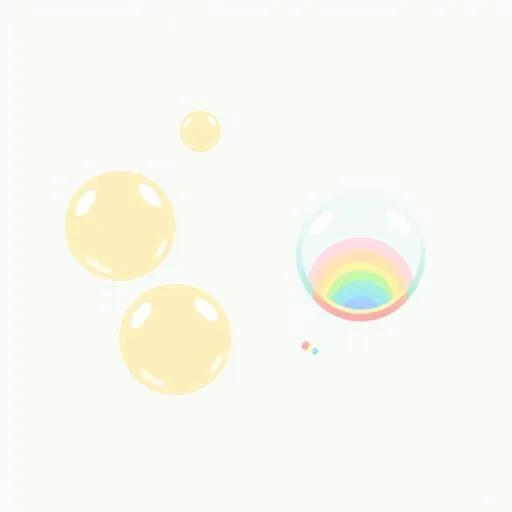
Have you ever watched a kid chase soap bubbles on a perfectly clear, sunny day? My daughter and I were doing just that the other day, with that late-summer warmth still hanging in the air. She was absolutely mesmerized by those shimmering, floating orbs. They’re beautiful, magical… and then POP! they vanish. Lately, reading the news about the economy and all the buzz around new technology, I can’t help but wonder if we’re all just chasing a giant, shimmering bubble. Headlines are screaming, “Are We in an AI Bubble?” and it’s enough to make any parent feel a little dizzy. But what if, instead of anxiety, this moment is actually offering us a huge dose of perspective?
Is the AI Hype a Bubble? The Roar of the Rocket and the Quiet Reality
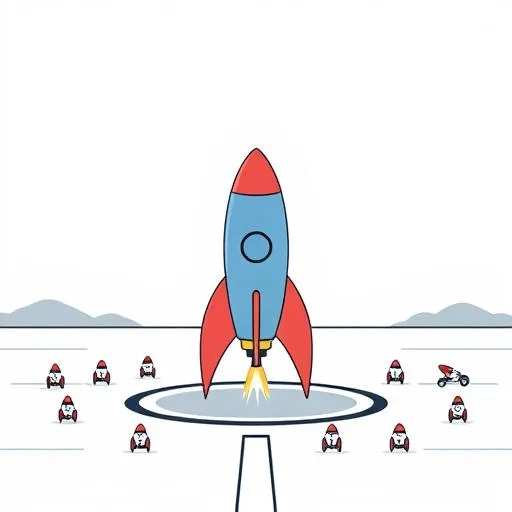
The energy is absolutely electric, isn’t it? It feels like we’re on the launchpad of something massive. Billions are being poured into these new technologies, with promises of a future that’s more efficient and productive than we can even imagine. The news talks about AI spending propping up entire economies! It’s this massive, private-sector stimulus program, as one economist put it. It’s exciting! But then you dig a little deeper, and the picture gets… well, more human. A recent MIT study dropped a bombshell of a statistic: researchers found that a staggering 95% of the AI initiatives they looked at weren’t actually seeing any return on their investment. Wow. Let that sink in. It’s like everyone has bought a ticket for a rocket to Mars, but most of the ships are still just sitting on the tarmac, engines cold.
This doesn’t mean the journey is canceled! Not at all. It just means the timeline might be a little different from the breathless hype. The promise is real, but the path to getting there is probably going to be longer and twistier than we think. And honestly? That feels like a moment to take a deep, calming breath.
What Can We Learn from the Dot-Com Bubble? A Familiar Echo
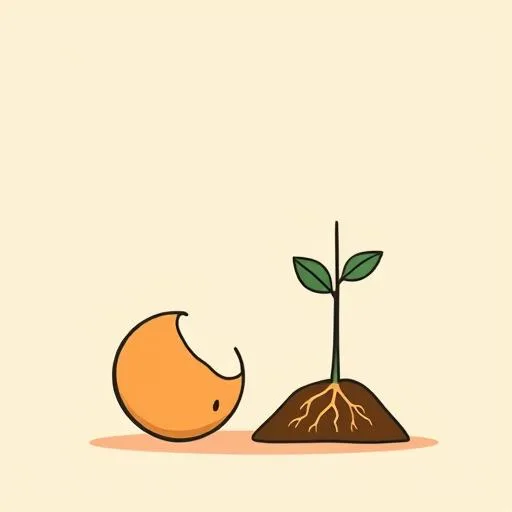
Remember back in the late ’90s when everyone thought every .com idea was pure gold? That dot-com boom had that same wild, world-changing energy. Everyone was convinced that any company with a “.com” in its name was a golden ticket. We know how that story went—a spectacular bubble that burst, causing a lot of pain. Even figures like OpenAI’s CEO Sam Altman have drawn parallels between now and then. The current excitement, with a handful of giant companies driving the market, is even more concentrated than it was back then.
But here’s the incredible lesson from that time: after the bubble popped, the internet didn’t go away. It quietly, steadily, and profoundly changed everything. The real revolution wasn’t in the overhyped stocks; it was in how we connected, learned, and lived in the years that followed. That’s the perspective that gives me so much hope! A market correction or a bursting bubble isn’t the end of the story. It’s often the end of the hype story, and the beginning of the real one. It clears the stage for genuine, sustainable growth.
How Does the AI Bubble Affect Our Kids? The Unexpected Gift
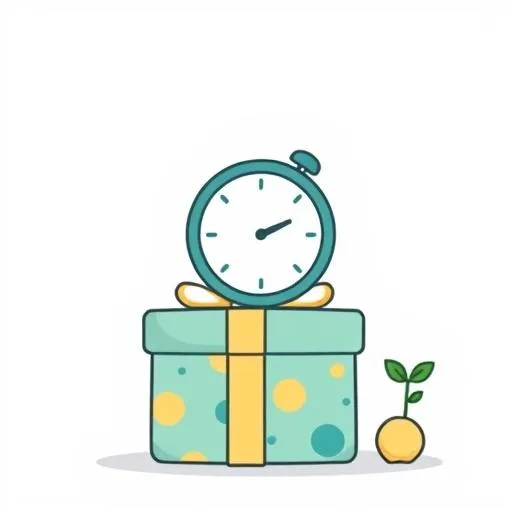
Okay, this is the part that gets me fired up! One of the biggest fears I hear from fellow parents is, “Will my child have a job? Will robots replace them?” It’s a heavy weight to carry. But one of the articles I read pointed out an absolutely brilliant silver lining to this whole bubble conversation: if the hype is outpacing the reality, then the fears of sudden, mass job displacement are likely “overblown.” Yes! This is fantastic news!
It means we’ve been given a gift—the gift of time. The future isn’t arriving tomorrow in a full-blown robot takeover. We have a runway. We have time to prepare our kids not for a specific, narrow career path that might not exist in 15 years, but for something so much more powerful: a future of change. We can stop panicking about teaching seven-year-olds to code complex algorithms and start focusing on the timeless skills that will make them irreplaceable.
How Can We Build a Future-Proof Foundation? From Consumers to Creators
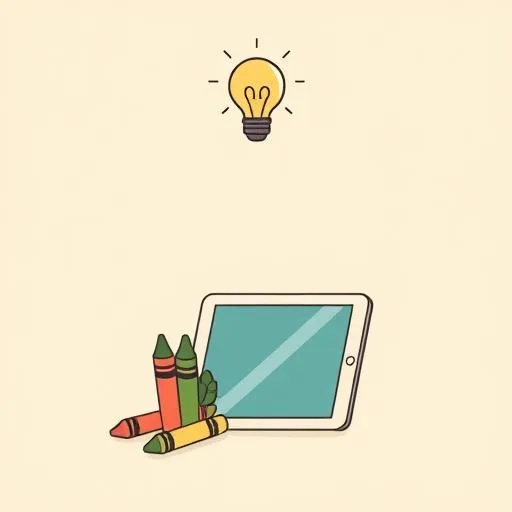
So, what do we do with this gift of time? We double down on what makes our kids wonderfully, beautifully human. We nurture the skills that no machine can replicate. This isn’t about banning screens; it’s about transforming how we use them. Instead of passive consumption, we can encourage active creation.
Think of these new tools as the world’s coolest set of crayons. A crayon can’t draw a picture on its own; it needs an artist with an idea, a story, a spark of curiosity. That’s our kids! We can foster their creativity, their critical thinking, their empathy, and their resilience. We can teach them to ask brilliant questions, to collaborate with others, and to solve problems that matter to them.
Why not try this? Next time you have a free afternoon, use an image tool together to dream up a silly character—like a purple squirrel who wants to be an astronaut. Then, put the screen away, grab some paper and pens, and write the story of his first adventure together. You’re using the tech as a launchpad for imagination, not as the final destination. You’re building a creator, a storyteller, a problem-solver.
What Really Matters Beyond the AI Bubble Pop? Focusing on What’s Real
Whether this AI bubble pops, gently deflates, or solidifies into something real and lasting, our mission as parents remains beautifully unchanged. Our job isn’t to predict the stock market; it’s to raise children who are kind, curious, and confident enough to navigate whatever future comes their way. The long-term potential of this technology is still immense, but it will be shaped by the next generation of thinkers, dreamers, and builders.
Looking at my daughter, so full of joy as she creates her own little worlds with nothing but cardboard boxes and imagination, I’m reminded that the most powerful technology she’ll ever have is her own incredible mind and her own compassionate heart. And our job is simply to help her see that, to nurture it, and to cheer her on with every ounce of our being. The future is bright, not because of the tech, but because of them.
Source: Are We in an AI Bubble?, The Atlantic, 2025/09/07 11:30:00
